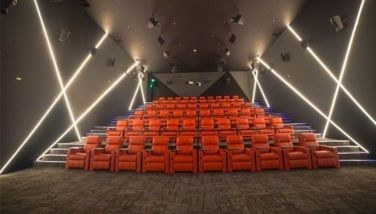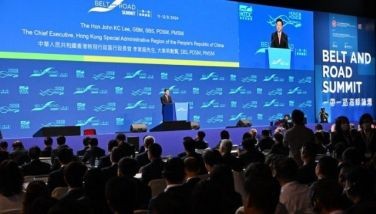The problem with self regulation

October 13, 2006 | 12:00am
There was a time when self regulation for the advertising industry worked. I should know… I was in the thick of it in the mid to late 70s when my service was volunteered by my boss, Tony de Joya, to the Philippine Board of Advertising (PBA). Among other things, I edited the industry newsletter and worked on the PR requirements of the industry self regulatory body under the supervision of another industry great, Lyle Little of J. Walter Thompson.
I remember having to go before the screening committees of the PBA to seek pre-approval of a commercial while it was still in the storyboard stage. In the spirit of self regulation, I also remember having to go before the same committees to complain about a claim made by a competing brand or defend a claim we have made that is being questioned.
Self regulation was the mantra in those days and it worked. Industry standards were set and somehow, people went out of their way to follow them. We were all eager to show that we did not need the strong hand of government to make us behave. Years after I left the industry and the PBA was renamed the AdBoard, I thought the self regulatory mode has taken root. It didn’t.
A few years ago, one of the two broadcast giants left the KBP, the industry association that was part of the old PBA, because it wanted to sell more commercial minutes per broadcast hour than the maximum a KBP rule allowed. I was told that in the case of outdoor advertising, those who also could not accept the responsible standards of the industry association also left it or never joined it. Self regulation was apparently alright until the regulation started to affect the business model… and resigning freed the entity from self regulation.
Maybe the only reason self regulation worked in the old days was because it was the martial law era and the alternative was a threat of regulation by the martial law regime. Now that we are free and democratic, free enterprise, to many of us today, mean free for all. We are unable to think in terms of the common good, to the point of anarchy.
That is precisely what we have in the streets today… anarchy. The guys who are running the billboards along the MRT infrastructure reportedly threatened MMDA Bayani Fernando with damages amounting to millions of pesos a day if he continued trying to dissuade the advertisers from using the MRT billboards. The way the billboard guys see it, no one should interfere with their absolute right to make money at the expense of safety on EDSA. It also didn’t matter to them that the aesthetic quality of our national capital region is sacrificed by all that clutter.
I guess the mess we now see in EDSA and most major avenues is a reflection of our warped sense of nationhood. It took the strongest typhoon in 11 years to force us to confront ourselves, re-evaluate what kind of people we are and hopefully show the world we are able to do the right thing once we are made to realize the reality of our folly.
Then again, the latest I heard is that even in the face of tragedy, there are those who would insist that their interests prevail over that of the greater society. Self regulation in the advertising industry is obviously a failure these days, which is why government has stepped in to impose law and order. But given the state of our judicial system, even an appeal to law and order could take an uncertain route.
I guess it is up to the big guys whose products and services are plastered in those billboards to give self regulation another chance. If the advertisers refused to advertise in those outsized billboards that kill and maim… those MRT billboards, those safety hazards that clutter and make our city ugly as they distract our motorists… then the problem would be solved in a jiffy.
I know from personal experience that self regulation in the advertising industry can work. Making it work now, not just during a martial law regime, should be the best corporate social responsibility project the big corporate guys in the advertising and marketing industry can have.
So, how about it, guys?
Speaking of responsibility, here’s another big one that we have to carry as Filipinos. The Philippines is apparently part of a region that has long been recognized as the world’s center of marine biodiversity… more specifically, the Verde Island passage is said to be the center of this center.
What does this mean?
It means the richest concentration of marine life on the entire planet is in that body of water between Batangas, Mindoro, Marinduque and Romblon. A study by prominent biologists Kent Carpenter of the IUCN (World Conservation Union) and Victor Springer of the Smithsonian Institution’s National Museum of Natural History suggests that the Philippines is not only part of the center but is, in fact, the epicenter of marine biodiversity.
Kent Carpenter, Old Dominion University associate professor of biological sciences who headed the study, says, "Scientists have long known that the area in Southeast Asia that includes Indonesia, Malaysia and the Philippines holds the richest marine biodiversity. I was amazed to discover that the extreme center of this biodiversity is in the Philippines, rather than closer to the equator."
The study indicates that the Philippines is home to an astonishingly high variety of marine life, particularly along the Verde Island Passage – an important domestic sea route. However, the people and natural resources in the Verde Island Passage are facing numerous challenges in terms of habitat destruction, law enforcement, and population pressure, among others.
The problem is hardly surprising. This center of center of marine biodiversity is highly threatened by a host of factors ranging from destructive fishing practices to soil erosion and global warming. The comparatively high number of species found only in the Philippines faces a real threat of extinction, including of species that have yet to be discovered by scientists. Carpenter and Springer liken the Philippine seas to the Amazon, as rich in unique life and equally endangered. And that’s the responsibility we must face as a country and as a people.
Clearly, marine conservation efforts in the Philippines warrant special attention. First Gen Corp., First Philippine Conservation, Inc. and Conservation International Philippines have earlier formed a tri-partite partnership to implement the Verde Island Passage Integrated Conservation and Development Program to jumpstart the preservation of marine life in the area.
After more than a year, the partnership is launching the Center of the Center Campaign. This aims to generate a greater level of awareness on the Verde Island Passage and wider support and commitment from local and national stakeholders, and the general public. Can you imagine the tragedy if one of those single hull oil tankers spilled their cargo in this area?
Those who want to find out more, may want to attend a public forum with Dr. Kent Carpenter today, from 1 to 4 p.m. at the Quezon room of the Makati Shangri-La Hotel.
A week after Milenyo, I asked somebody in Meralco familiar with its field operations about reports of stolen wires. At that time, I was told that some 3000 kilos of wires, worth around P1.2 million had been confirmed stolen. The figures must be higher now as restoration work is still on going.
This situation again demonstrates our inability as a people to act in the best interest of the community. Of course it is a police problem because we have laws that prevent the thieves from turning their loot into cash by penalizing the junk shops that buy from them. But the law is only as good as the community dictates.
In the end, many communities suffered from the activities of the few. Restoration of power is delayed by those wire thieves. The police cannot be everywhere. Communities have to act to protect themselves from now on… for their own good.
Here’s something from Dr. Ernie E.
Reporters interviewing a 104-year-old woman: "And what do you think is the best thing about being 104?" the reporter asked.
She simply replied, "No peer pressure."
Boo Chanco ‘s e-mail address is [email protected]
I remember having to go before the screening committees of the PBA to seek pre-approval of a commercial while it was still in the storyboard stage. In the spirit of self regulation, I also remember having to go before the same committees to complain about a claim made by a competing brand or defend a claim we have made that is being questioned.
Self regulation was the mantra in those days and it worked. Industry standards were set and somehow, people went out of their way to follow them. We were all eager to show that we did not need the strong hand of government to make us behave. Years after I left the industry and the PBA was renamed the AdBoard, I thought the self regulatory mode has taken root. It didn’t.
A few years ago, one of the two broadcast giants left the KBP, the industry association that was part of the old PBA, because it wanted to sell more commercial minutes per broadcast hour than the maximum a KBP rule allowed. I was told that in the case of outdoor advertising, those who also could not accept the responsible standards of the industry association also left it or never joined it. Self regulation was apparently alright until the regulation started to affect the business model… and resigning freed the entity from self regulation.
Maybe the only reason self regulation worked in the old days was because it was the martial law era and the alternative was a threat of regulation by the martial law regime. Now that we are free and democratic, free enterprise, to many of us today, mean free for all. We are unable to think in terms of the common good, to the point of anarchy.
That is precisely what we have in the streets today… anarchy. The guys who are running the billboards along the MRT infrastructure reportedly threatened MMDA Bayani Fernando with damages amounting to millions of pesos a day if he continued trying to dissuade the advertisers from using the MRT billboards. The way the billboard guys see it, no one should interfere with their absolute right to make money at the expense of safety on EDSA. It also didn’t matter to them that the aesthetic quality of our national capital region is sacrificed by all that clutter.
I guess the mess we now see in EDSA and most major avenues is a reflection of our warped sense of nationhood. It took the strongest typhoon in 11 years to force us to confront ourselves, re-evaluate what kind of people we are and hopefully show the world we are able to do the right thing once we are made to realize the reality of our folly.
Then again, the latest I heard is that even in the face of tragedy, there are those who would insist that their interests prevail over that of the greater society. Self regulation in the advertising industry is obviously a failure these days, which is why government has stepped in to impose law and order. But given the state of our judicial system, even an appeal to law and order could take an uncertain route.
I guess it is up to the big guys whose products and services are plastered in those billboards to give self regulation another chance. If the advertisers refused to advertise in those outsized billboards that kill and maim… those MRT billboards, those safety hazards that clutter and make our city ugly as they distract our motorists… then the problem would be solved in a jiffy.
I know from personal experience that self regulation in the advertising industry can work. Making it work now, not just during a martial law regime, should be the best corporate social responsibility project the big corporate guys in the advertising and marketing industry can have.
So, how about it, guys?
What does this mean?
It means the richest concentration of marine life on the entire planet is in that body of water between Batangas, Mindoro, Marinduque and Romblon. A study by prominent biologists Kent Carpenter of the IUCN (World Conservation Union) and Victor Springer of the Smithsonian Institution’s National Museum of Natural History suggests that the Philippines is not only part of the center but is, in fact, the epicenter of marine biodiversity.
Kent Carpenter, Old Dominion University associate professor of biological sciences who headed the study, says, "Scientists have long known that the area in Southeast Asia that includes Indonesia, Malaysia and the Philippines holds the richest marine biodiversity. I was amazed to discover that the extreme center of this biodiversity is in the Philippines, rather than closer to the equator."
The study indicates that the Philippines is home to an astonishingly high variety of marine life, particularly along the Verde Island Passage – an important domestic sea route. However, the people and natural resources in the Verde Island Passage are facing numerous challenges in terms of habitat destruction, law enforcement, and population pressure, among others.
The problem is hardly surprising. This center of center of marine biodiversity is highly threatened by a host of factors ranging from destructive fishing practices to soil erosion and global warming. The comparatively high number of species found only in the Philippines faces a real threat of extinction, including of species that have yet to be discovered by scientists. Carpenter and Springer liken the Philippine seas to the Amazon, as rich in unique life and equally endangered. And that’s the responsibility we must face as a country and as a people.
Clearly, marine conservation efforts in the Philippines warrant special attention. First Gen Corp., First Philippine Conservation, Inc. and Conservation International Philippines have earlier formed a tri-partite partnership to implement the Verde Island Passage Integrated Conservation and Development Program to jumpstart the preservation of marine life in the area.
After more than a year, the partnership is launching the Center of the Center Campaign. This aims to generate a greater level of awareness on the Verde Island Passage and wider support and commitment from local and national stakeholders, and the general public. Can you imagine the tragedy if one of those single hull oil tankers spilled their cargo in this area?
Those who want to find out more, may want to attend a public forum with Dr. Kent Carpenter today, from 1 to 4 p.m. at the Quezon room of the Makati Shangri-La Hotel.
This situation again demonstrates our inability as a people to act in the best interest of the community. Of course it is a police problem because we have laws that prevent the thieves from turning their loot into cash by penalizing the junk shops that buy from them. But the law is only as good as the community dictates.
In the end, many communities suffered from the activities of the few. Restoration of power is delayed by those wire thieves. The police cannot be everywhere. Communities have to act to protect themselves from now on… for their own good.
Reporters interviewing a 104-year-old woman: "And what do you think is the best thing about being 104?" the reporter asked.
She simply replied, "No peer pressure."
Boo Chanco ‘s e-mail address is [email protected]
BrandSpace Articles
<
>
- Latest
- Trending
Trending
Latest
Trending
Latest
Recommended






























